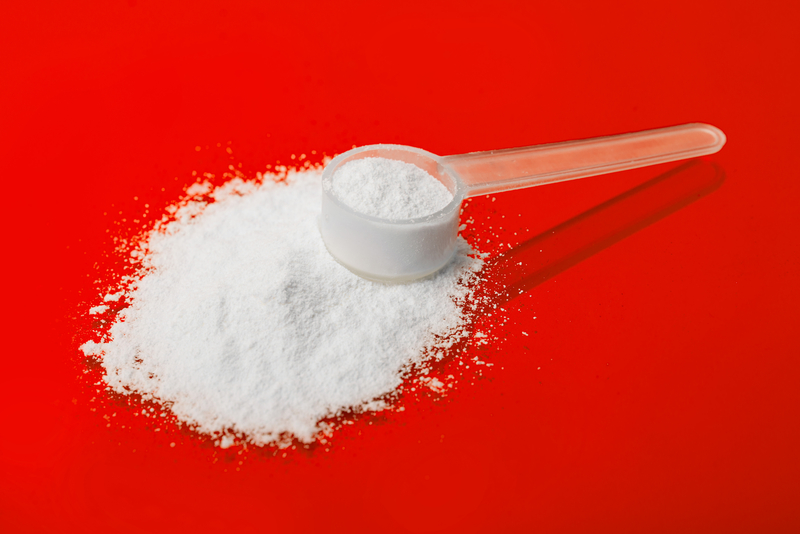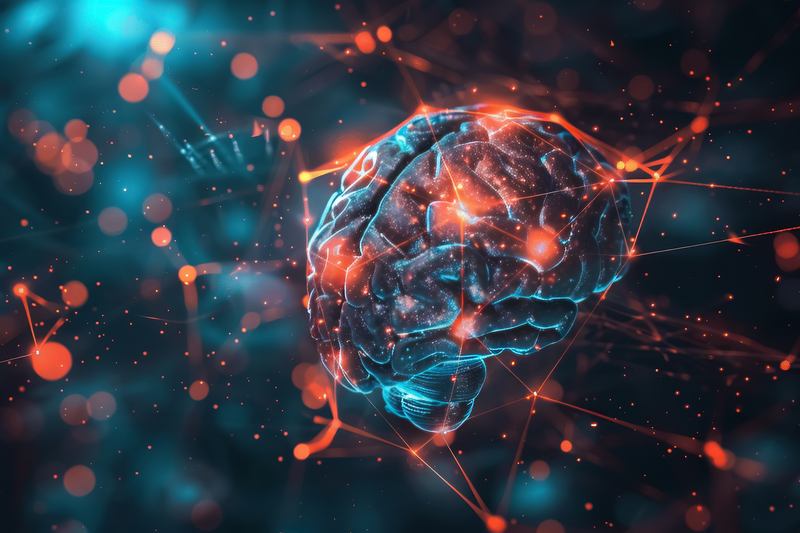Creatine for Cognitive Functioning: Here’s what the science says

Creatine has been on the market as a powerful sports supplement since the early 1990s. It first gained attention in the late 1980s when initial research found it may help boost athletic performance, especially for high-intensity, short-duration activities like weightlifting, sprinting, and jumping. Today, there are thousands of studies on creatine, not only for its benefits for athletes but for people as they age. For instance, new research indicates creatine for cognitive functioning may be surprisingly helpful.
What Is Creatine?
Creatine is a natural nutrient found in small amounts in several foods, including red meat, pork, lamb, certain types of fish (e.g., salmon, tuna, and haddock), poultry, milk, cheese, and eggs. It’s also naturally produced by the body, primarily in the liver, kidneys, and pancreas. The compound plays a crucial role in energy in the cells.
However, when it comes to the benefits of creatine, most of the research is on the white powdered supplement, usually in the form of creatine monohydrate.
After its introduction in the ‘90s, creatine supplements quickly gained traction as athletes from numerous sports began singing their praises. High-profile athletes, including bodybuilders, sprinters, football and baseball players, publicly credited creatine with helping them get stronger, more powerful, bigger muscles. This, of course, attracted media attention. Articles and reports discussing the benefits of creatine started appearing not just in niche publications for athletes but also in mainstream outlets. It didn’t take long for it to catch on with recreational athletes and fitness enthusiasts.
Since then, creatine has remained one of the most widely studied and used sports supplements worldwide.

What Does Creatine Do?
When you supplement with creatine, it increases the stores of phosphocreatine in cells, particularly muscle cells. The phosphocreatine can then be rapidly converted into ATP when the cells need energy. With the increased availability of ATP, people often see an increase in performance.
Research has found creatine can help enhance muscle strength and power. It may also help increase muscle mass, especially when combined with resistance training. This is because it promotes muscle protein synthesis and cell volumization, which can lead to muscle growth.
Creation supplementation may also help you work out harder and for longer. Its ability to increase exercise capacity is due to its effects on energy production (via ATP) along with its ability to help buffer the buildup of metabolites that cause muscles to fatigue.
Some research also suggests creatine supplementation may help the muscles recover after exercise, potentially helping balance excess inflammation to help the body reduce muscle damage.
Finally, there’s emerging evidence that suggests creatine may have positive effects on cognitive functioning, such as improved memory and learning. The research on creatine only continues to grow as scientists investigate how it works, its potential benefits, and its overall safety.
Creatine for Cognitive Functioning
Creatine plays a crucial role in cellular energy metabolism not only in the body but in the brain as well. For example, creatine acts as a reservoir for high-energy phosphate groups, which can rapidly be transferred into ADP (adenosine diphosphate) to regenerate ATP. ATP is the primary energy currency in cells, including neurons. By helping replenish ATP levels, creatine may sustain energy production, which can help power neurotransmission.
Creatine may also help buffer energy fluctuations. The brain has high and low energy demands, depending on what you’re doing. For example, if you’re involved in tasks that require mental processing, creatine may help smooth out energy fluctuations. This could help the brain function when there are increased energy demands on the brain cells, such as during intense focus, problem-solving, or mental calculations.
Another potential benefit of creatine for cognitive functioning is neuroprotection. While more research is needed, scientists suggest creatine may help support the brain’s ability to repair after injury or stress. They’ve indicated that by enhancing ATP regeneration in the brain, creatine may help lessen cell damage and promote neuronal survival.
Some research also suggests that creatine supplementation may help improve memory, particularly working and spatial memory, and cognitive performance. The mechanisms are not yet fully understood, but researchers suggest creatine’s effects on energy metabolism in the brain may contribute to the cognitive-boosting properties.
There’s emerging evidence that creatine may help enhance mood and energy levels and reduce mental fatigue. Limited research has also been examining the effects of creatine on reasoning and executive functioning. However, the effects are less clear than creatine’s potential benefits for reaction time, attention, and decision-making.
More research is needed to fully understand how creatine may (or may not) enhance brain function and cognitive performance in various situations and for different individuals. However, the preliminary evidence is quite promising.

How Much Creatine Do You Need?
Like any supplement, the dosage can depend on the intended purpose and individual factors. For instance, for muscle gain and physical performance, between 3 and 5 grams of creatine per day is the typical recommendation. For cognitive functioning, dosages vary between 5 and up to 20 grams per day, starting with a loading dose and often tapering back down to 5 grams. That said, higher amounts may not result in greater benefits. And taking a larger amount of creatine at one time could lead to some stomach or GI discomfort.
Especially if you’re considering supplementing with creatine for cognitive functioning or if you have any medical conditions, it’s a good idea to discuss it with a knowledgeable healthcare practitioner who may be able to provide personalized recommendations based on your needs and health status.
Creatine’s Benefits for People Over 50
There’s some evidence that supplements like creatine may help us “age” more gracefully. For example, aging is often associated with a natural decline in muscle mass and strength, as well as cognitive functions.
Creatine supplementation, combined with resistance training, has been shown to help people maintain and even gain muscle mass and strength. These improvements could then lead to overall improvements in physical function and mobility.
If there are times when you’re not able to exercise (such as when recovering from an injury or illness), some studies suggest creatine may help you preserve muscle mass by supporting protein synthesis.
Another big benefit for older adults is creatine’s potential positive effects on bone health. Creatine may indirectly support bone health by helping improve muscle strength and function. In addition, it may help reduce the risk of falls and fractures as you get older. In essence, you’re less likely to fall if you have greater levels of strength.
Creatine supplementation may also make exercise more enjoyable. With enhanced physical performance and reduced levels of fatigue, older adults may find the time they spend moving their bodies easier.
There’s only a limited amount of data on the effects of creatine on sleep and recovery. However, due to its role in energy metabolism, there is some belief that creatine may indirectly support sleep quality and the body’s ability to recover.
Older adults, as well as vegetarians and people with certain medical conditions, are more likely to have lower levels of creatine. So, the benefits of creatine supplementation on physical and cognitive functioning may be even greater than they are for younger individuals. And it may allow us to live with greater independence and vitality as we age.
Creatine for Cognitive Functioning Takeaways
Whether you’re an athlete looking for an edge on the field or court, working hard to gain strength and size in the gym, or an older adult who’s trying to stave off the effects of aging, creatine supplementation may provide impressive benefits. That said, it’s important to remember creatine, and any other supplement, is just part of the equation when it comes to improving health and cognitive functioning. It’s important to include other lifestyle factors, such as a healthy, nutrient-dense diet and consistent exercise routine, for the greatest health benefits.




